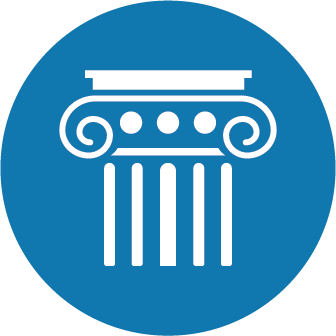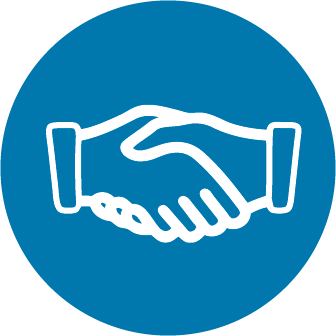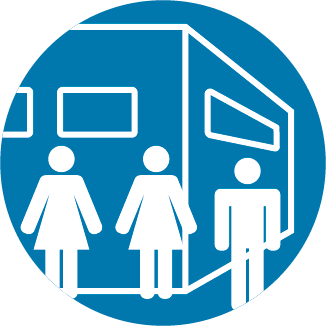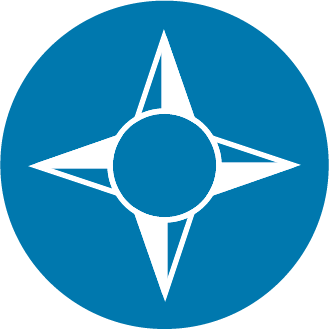What keeps effective programs sustained over time? Believe it or not, it takes more than just money! Looking across programs you often see that, even with the same level of funding, some programs are able to sustain themselves and some unfortunately are not.
The Sustainability Framework that we have developed identifies a small set of organizational and contextual domains that can help build the capacity for maintaining a program.
We define sustainability capacity as the ability to maintain programming and its benefits over time. To improve capacity for sustainability, we encourage strengthening structures and processes that exist within your program to ensure you can strategically leverage resources to weather the changes and challenges that come your way.
The first step in improving sustainability capacity is to build your understanding of the factors that impact a program. To learn more about the Sustainability Framework and the eight key domains that can influence a program’s capacity for sustainability, select a domain icon to the right or continue scrolling down the page.
“"Other programs were worried about what could happen with their program and staffing levels. I was not because we have demonstrated that our staff is effective." ”
– Director of the North Dakota Tobacco Prevention and Control Program Neil Charvat
Environmental Support
We define Environmental Support as:
Having a supportive internal and external climate for your program.
Why does Environmental Support matter?
No matter the level at which your program operates, the overall economic and political climate will affect your ability to get things done. Whether decision makers support your cause, they deserve your attention. Work to get people of influence on your side, both within and outside of your organization. Often these decision makers control the money, and if you want some for your program, you will need them to know and like your program. In addition, champions can get policies passed that benefit your target population and help achieve your program goals.

Funding Stability
We define Funding Stability as:
Establishing a consistent financial base for your program.
Why does Funding Stability matter?
Planning for stable funding should be a strategic process that addresses the long-term needs of your program and adjusts to changing trends in economic and political cycles. Funding highs and lows put stress on programs and make it difficult to provide consistent quality services. Programs that rely on a single funding source, rather than multiple sources, are more vulnerable when funding cuts occur. For all these reasons, it’s important to build a stable and diverse funding base.

Partnerships
We define Partnerships as:
Cultivating connections between your program and its partners.
Why do Partnerships matter?
Partners play an important role in sustainability in several ways: connecting you to greater resources or expertise, providing services if your program has to cut back, and advocating on behalf of your cause. Partners can also help rally the community around your program and its goals. They can range from business leaders and media representatives to organizations addressing similar issues and community members. When your program is threatened either politically or financially, your partners can be some of your greatest champions. Building awareness and capacity for sustainability requires a strategic approach and partnerships across sectors, including alliances between private and public organizations.

Organizational Capacity
We define Organizational Capacity as:
Having the internal support and resources needed to effectively manage your program.
Why does Organizational Capacity matter?
Organizational capacity encompasses a wide range of capabilities, knowledge, and resources. For example, having enough staff and strong leadership can make a big difference in accomplishing your program goals. Cultivating and strengthening your program’s internal support can also increase your program’s likelihood of long-term success.

Program Evaluation
We define Program Evaluation as:
Assessing your program to inform planning and document results.
Why does Program Evaluation matter?
Evaluation helps keep your program on track with its goals and outcomes. If evaluation data shows that an activity or strategy isn’t working, you can correct your program’s course to become more effective.
Moreover, collecting data about your program’s successes and impact is a powerful tool for gaining support and funding. If your evaluation data shows that your program is making an important (or irreplaceable) impact, you can make a strong case for why your program needs to continue. Even in times of decreased funding, evaluation and monitoring data are key for the pursuit of new funding sources.

Program Adaptation
We define Program Adaptation as:
Taking actions that adapt your program to ensure its ongoing effectiveness.
Why does Program Adaptation matter?
Circumstances change and sometimes your program needs to as well. The goal is not necessarily to sustain all of a program’s components over time, but rather to sustain the most effective components and their benefits to your target group. This requires flexibility, adaptation to changing conditions, and quality improvement within your program. By using your evaluation data and current evidence-base, you can ensure that your program effectively uses resources and continues having an impact.

Communications
We define Communications as:
Strategic communication with partners and the public about your program.
Why do Communications matter?
People need to know what your program does and why it’s important. Communicating externally about your program’s effectiveness helps the program gain greater visibility and builds support from partners and the public. Internally, evidence that a program works builds staff buy-in and support from organizational leaders. The more people know and care about your program and mission, the more likely they are to support your efforts to continue providing services in the long term.

Strategic Planning
We define Strategic Planning as:
Using processes that guide your program’s directions, goals, and strategies.
Why does Strategic Planning matter?
Strategic planning is the glue that holds sustainability efforts together. Without a strategic direction and long-term goals, programs find themselves only reacting to day-to-day demands. Strategic planning combines elements of all of the sustainability domains into an outcome-oriented plan. Planning also ensures that the program is well aligned with the larger external and organizational environment.









